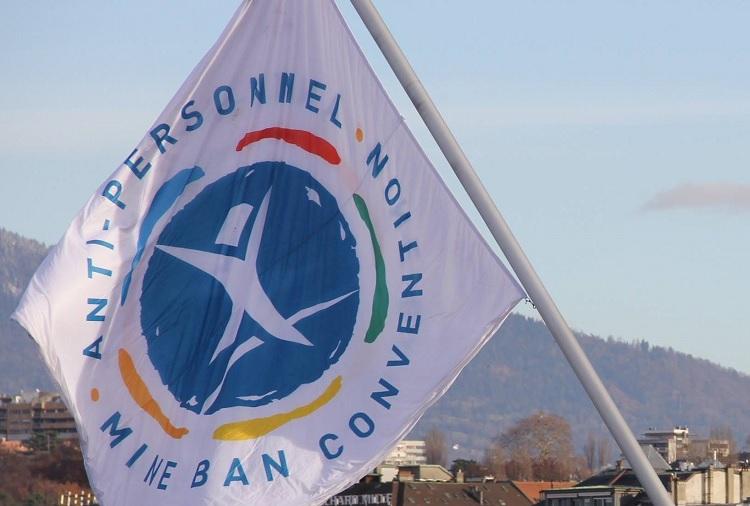Implementation of the Anti-Personnel Mine Ban Convention: Challenges and success stories

The event aimed at promoting the EU Council Decision adopted in 2017 (COUNCIL DECISION (CFSP) 2017/1428 of 4 August 2017) in support of the implementation and universalization of the Anti-Personnel Mine Ban Convention across various regions of the world. The EU Council Decision Project, worth 2.3 million Euros, is only the latest in a series of EU Council Decisions that have contributed to the implementation of key aspects of the Convention.
The event provided a platform to these five mine-affected countries that benefited from the EU’s support to present their achievements and challenges in their efforts to implement the Convention. Through their testimonials, the EU’s support was credited for a wide array of actions, which allowed these countries to further advance the implementation of the Convention: mine clearance, changes in national policies benefitting mine victims/people with disabilities, including national plans, and national dialogues. The experts from the guest countries underlined the importance of dialogue and partnership in carrying out national stakeholders’ dialogues, with broad participation from mine victims and incorporating gender perspectives in the discussions. They all underscored the importance of continuity in the work assisting mine victims, despite difficult conditions under Covid-19 pandemic. They called for more donor support to assist in their national mine action efforts.
The EU reiterated its strong support for the universal ban of anti-personnel mines and noted that the Council Decision Project was part of the EU’s efforts to promote the universalization and the implementation of the Convention, a long-term commitment and objective which the EU will pursue through a follow-on Council Decision. The EU pledged to continue to raise awareness about the Convention, to provide financial support for mine affected countries, and to intensify efforts towards the universalization of the Convention.
Background
The EU and its Member States have been staunch supporters of the global ban on anti-personnel mines and have a long history of support for mine action that benefits nearly all heavily mine-affected countries and regions of the world. The total assistance provided by the EU in the past 5 years amounts to more than 800 million EUR in more than 25 mine-affected countries. Our assistance covers the whole scope of mine action: clearance, stockpile destruction, victim assistance, risk education, advocacy and capacity building. Moreover, as declared at the Oslo Review Conference, the EU is committed to providing further cooperation and assistance in light of the new Oslo Action Plan. To date, two EU Council Decisions and one Joint Action have contributed to the implementation of key objectives of the Anti-Personnel Mine Ban Convention in more than 20 States Parties.
EU Council Decision 2017/1428 (2017-2020)
On 17 August 2017, the Council of the European Union adopted Decision 2017/1428/CFSP in support of the implementation of the Convention. The Decision, worth 2.3 million EUR, was launched at the Sixteenth Meeting of the States Parties (in December 2017 in Vienna). The Convention’s Implementation Support Unit (ISU) has been entrusted to serve as the technical implementer for the Decision which was set to be concluded in October 2020. However, due to Covid-19 restrictions, a number of activities could not take place within the period and a four-month extension was granted until February 2021.
Through this action, the ISU has been able to support affected States Parties to set-up national stakeholders’ dialogues on mine clearance and on victim assistance. The project also supported the High-Level Universalisation Task Force in its efforts to engage States not party to the Convention, at the political level. A follow-on EU Council Decision is under consideration with the aim of entering into force from March 2021 for four years.




